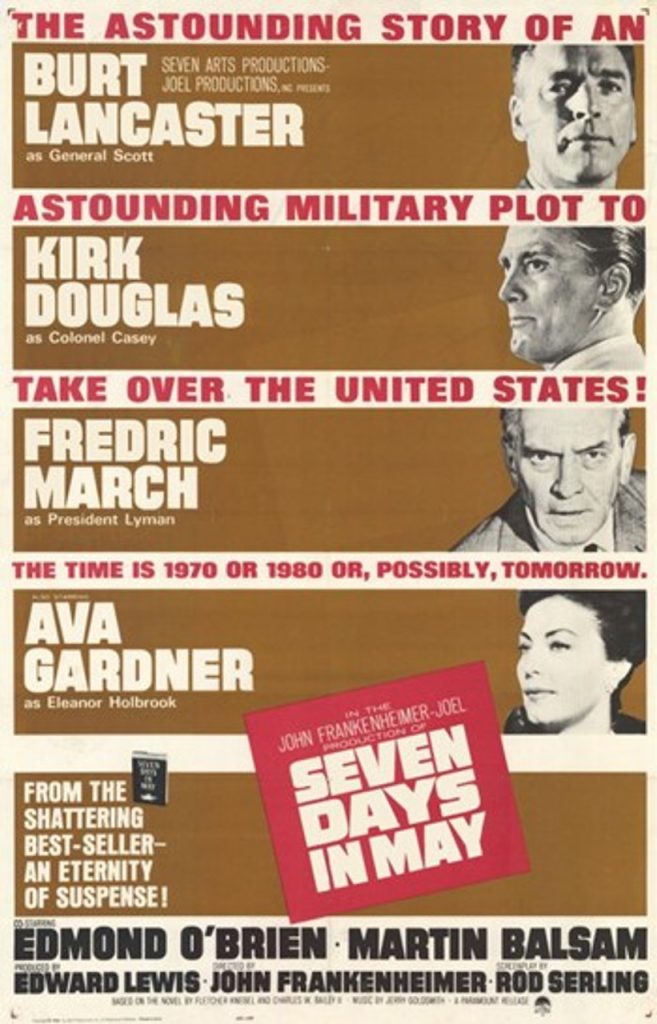

This year is the sixtieth anniversary of Seven Days in May, a pretty-good 1964 film about a planned military-political takeover of the United States government. It’s the thirtieth anniversary of an HBO remake, titled The Enemy Within. Both of those at the time seemed like fantasies, but now we’re hearing a lot of clucking about (and crowing from) a leader who wants to be a dictator.
I’m not suggesting that the two anniversaries, 60 and 30, are a countdown to a coup this year, or even a movie about a coup: We’ve already had the amply-reviewed Civil War, which skips by causes for conflict. In 1964, though, films typically relied not on special effects but on words. That’s what Seven Days in May did, when a presidential aide said the problem was the charismatic coup leader.
The embattled president responds, “He’s not the enemy… even the very emotional, very illogical lunatic fringe, they’re not the enemy. The enemy is an age. A nuclear age. It happens to have killed man’s faith in his ability…to influence what happens to him. And out of this comes a sickness. A sickness of frustration. A feeling of impotence, helplessness, weakness. And from this, this desperation…we look for a champion in red, white and blue. Every now and then a man on a white horse rides by…and we appoint him to be our personal god for the duration.”
That was then. This is now. In 1964 we were still getting used to nuclear bombs. Now we’re still getting used to social media, which seem to create a similar feeling of desperation—and maybe a similar yearning for a god other than God. That’s who we are. In every generation we can blame something new, but it’s called original sin.
###